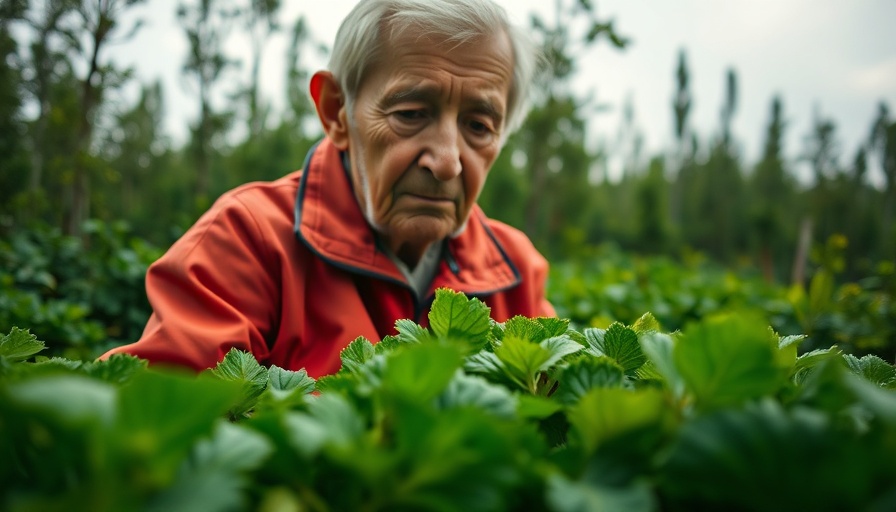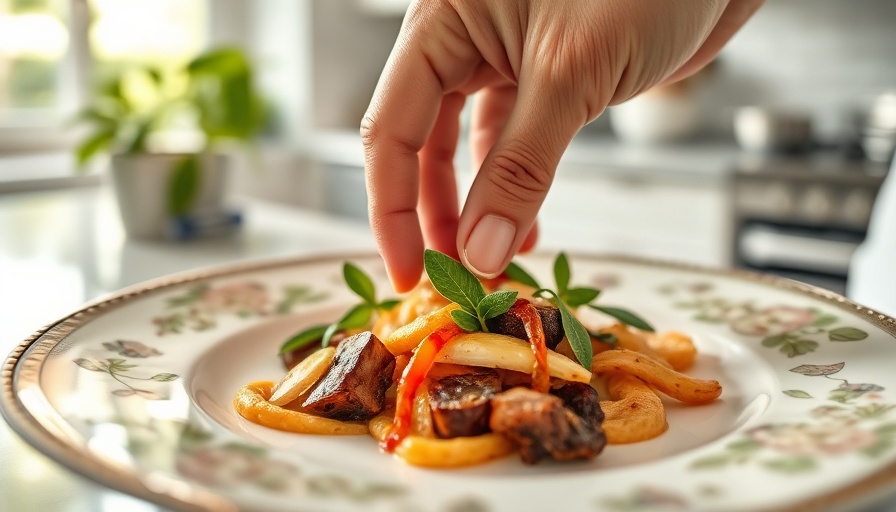
A Culinary Journey Through Charleston's Historic Legacy
Few cities in the U.S. embody the intersection of culinary excellence and cultural heritage like Charleston, South Carolina. Established in the late 1600s, Charleston thrived as a major port city, entwined with the painful legacies of slavery and the vibrant Gullah culture that would define its foodways. These traditions have not only survived but thrived, thanks to innovative Black culinary entrepreneurs reinvigorating this rich history while paving new paths for the future.
Connecting Food with Heritage: Meet the Visionaries
In a recent exploration of this picturesque coastline, we uncover the stories of prominent African American culinary entrepreneurs transforming their communities through food. Among them is Sarah Reynolds Green, who leads the Young Farmers and Chefs of the Lowcountry program at Marshview Community Organic Farm. With a passion rooted in childhood memories of farming, she teaches youth about agriculture and the importance of maintaining a connection to their Gullah roots. Green emphasizes that growing food instills good energy, stating, "Your vibration has an effect on the universe." Her mission is about more than just farming; it's about instilling pride and encouraging young people to reclaim their narratives around agriculture.
The Call of the Water: Ecotourism and Empowerment
Tia Clark, founder of Casual Crabbing With Tia, has also carved out her niche in this culinary renaissance. By offering ecotourism experiences, Clark invites participants to explore the waters of Charleston while learning about fishing traditions that have deep roots in Black culture. As she netted crabs with guests at Brittlebank Park, she reinforced a vital connection: "If you don't have a relationship with this water and know this water, you probably don't know who you are." Through her tours, she not only showcases Charleston’s culinary legacy but also creates opportunities for empowerment and environmental awareness.
Unearthing History: Gardens that Tell Stories
The journey through Charleston's culinary landscape wouldn't be complete without recognizing the important work of Ty Collins and Robert Bellinger at the historically significant Middleton Place plantation. Their Asé Garden serves as a powerful tribute to the enslaved gardeners who helped sculpt the land and its bounty. They work to resurrect culturally significant crops that have been lost to time, deepening the understanding of the heritage foods that form the foundation of Southern cooking. "Food isn’t just nutrition; it’s the marrow of our histories and identities," Collins remarks, highlighting the deep connection between what we eat and the stories we tell.
Pushing Culinary Boundaries in Bluffton
Bernard Bennett, chef and co-owner of Okàn in Bluffton, takes this legacy a step further. He embraces innovation while honoring the rich flavors of the Lowcountry, by incorporating inspiration from his heritage, such as West African dishes into his menus. His approach challenges diners to expand their palates and explore lesser-known facets of Southern cuisine. Each dish is an opportunity for guests to encounter the vibrancy of African American foodways, which historically have influenced Southern eating.
Knives that Tell a Story
In St. Stephen, Quintin Middleton, also a descendant of the notable Middleton family, has opened a unique knife shop. By crafting bespoke knives and utilizing techniques rooted in craftsmanship, he invokes the legacy of Black smiths who shaped the workforce of early Charleston. His story is one of passion for his craft and respect for tradition, proving that history can indeed be wielded in the art of cooking.
Keeping Traditions Alive with a Modern Twist
As we traverse Charleston's vibrant culinary scene, we meet Brittney Wall, who runs Shucktowne Mobile Oyster Bar, showcasing her creativity while paying homage to local traditions. By reimagining classic oyster condiments with cocktail-inspired flavors, she connects contemporary dining trends with the rich history of Coastal Carolina. Wall notes, "Food isn’t meant to stay the same forever. It changes with the people who cook it and enjoy it." Her enthusiasm is infectious, embodying the spirit of culinary evolution in the Lowcountry.
From educational programs to culinary innovations, these entrepreneurs demonstrate that food is not just sustenance but a vibrant tapestry woven from history, culture, and adaptability. Their stories serve not only to enrich our palates but also to awaken our consciousness about the histories intertwined with the food we eat.
Explore Charleston's Culinary Heritage
To dive deeper into Charleston's culinary legacy and experience these remarkable flavors firsthand, visit these entrepreneurs to taste their delicious dishes and learn their inspiring stories. It's an adventure for both your taste buds and your soul.
 Add Row
Add Row  Add
Add 




Write A Comment